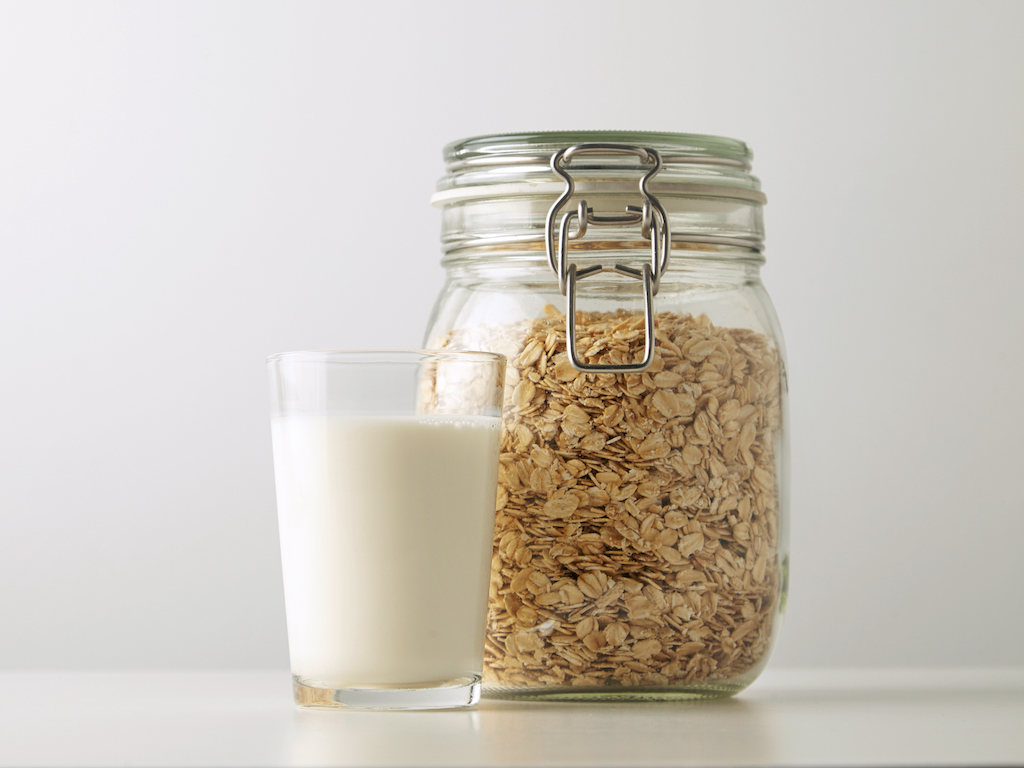11 Mins Read
Unless you’ve been living under a rock, chances are you’re starting to see oat milk everywhere. It’s taking over supermarket aisles, being served across Starbucks chains and even Silicon Valley’s barista of choice, Blue Bottle, is testing it out as its “default” option. But what exactly is oat milk? And how does it stack up against dairy—from a taste, nutrition and environmental standpoint? You’ve got questions, we’ve got answers. Here’s everything you need to know about this vegan dairy substitute that’s taking the world by storm.
Milk from oats?
Before we dive deep into the other questions, let’s focus on the first thing: what exactly is oat milk?
Oat milk is dairy-free milk derived from plant-based ingredients, using oats as its base. That means it does not contain any dairy from cows, or any animal-based byproducts. It is made via a process of extraction from whole oat grains. At home, oat milk can be made by blending oats with water, then straining the liquid to get rid of the pulp to make for a creamy plant-based milk substitute.
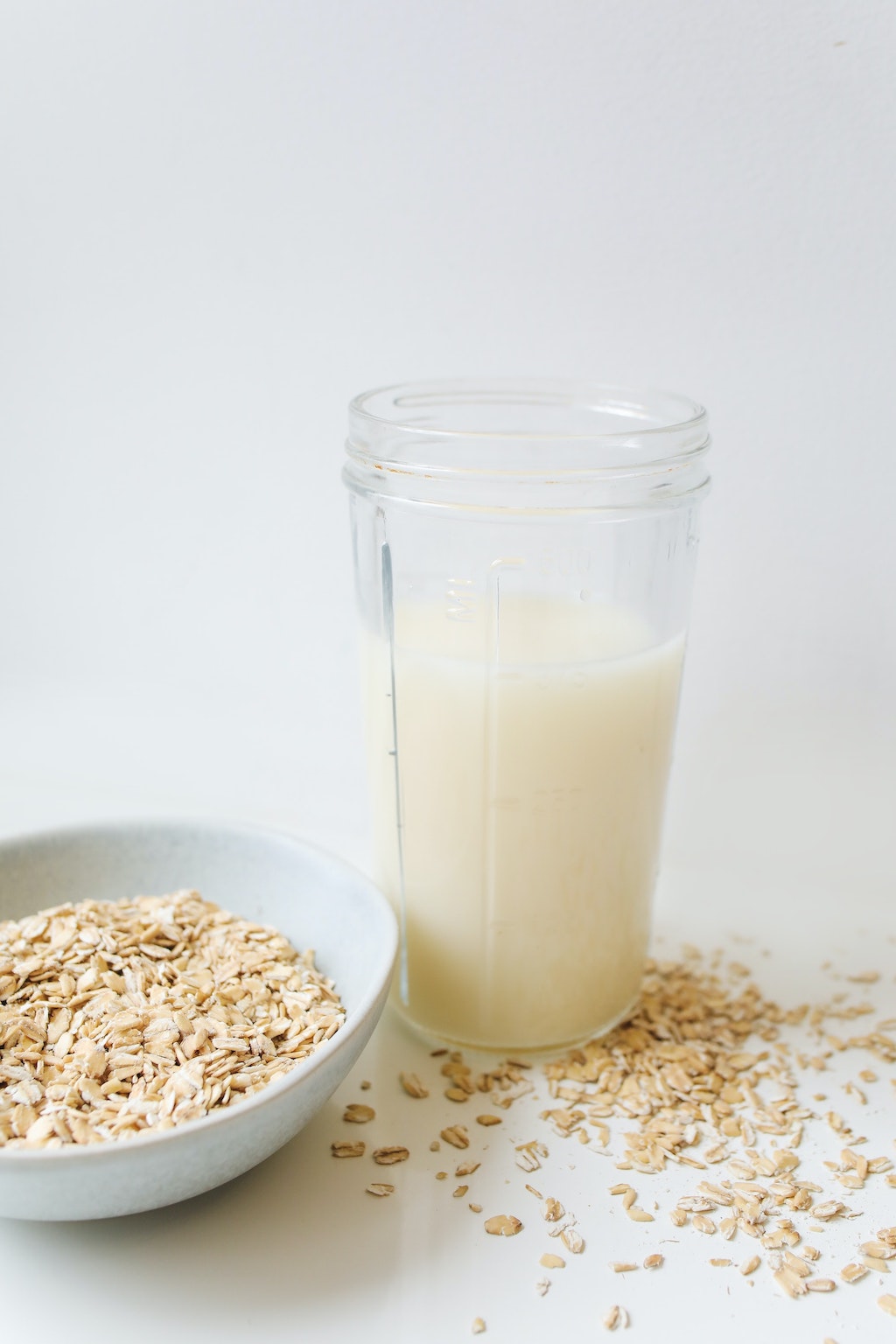
Commercially, oat milk is also made by combining oats with water, and milled into a fine consistency or strained. Now, different brands may formulate their oat milk using varied ingredients, such as enzymes to break down oat starch, sea salt, and/or plant-based oils. Common oils used include sunflower, canola or rapeseed oil to give a creamier texture and act as an emulsifier.
Some companies also add in sugar, sweeteners or flavourings to create a range of oat milk beverages, such as vanilla or chocolate. Brands may also fortify oat milk with vitamins and nutrients, like calcium, vitamin D, and B12.
Oat milk nutrition
Since it is made from oats, oat milk does contain many of the vitamins and minerals, as well as fibre, that oats naturally contain. These include manganese, phosphorus, vitamin B1, folates, zinc, iron, selenium and copper, to name a few.
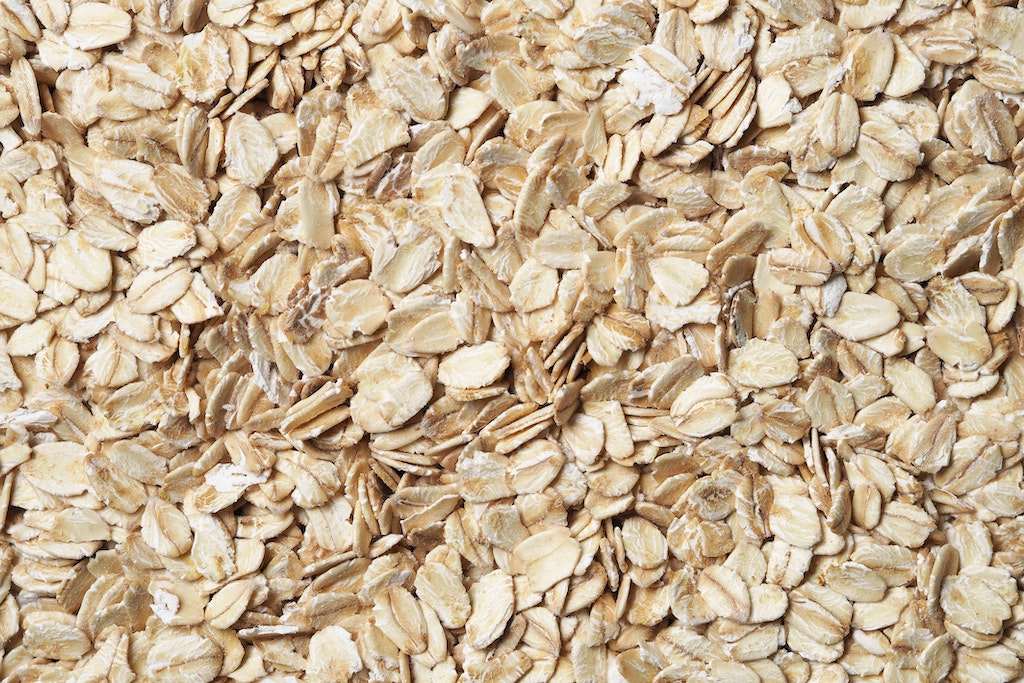
As mentioned earlier, many store-bought brands also fortify their products with extra nutrients, including vitamin A, D, B12, calcium, potassium, riboflavin, often to rival or surpass the average vitamin and mineral content of traditional dairy-based milk products.
Calorie-wise, one cup of oat milk (based on the popular brand Oatly) contains roughly similar energy content at 120 calories per 240ml or one cup serving. Because it uses oats as its base, it naturally contains more carbohydrates, around 1.5-times compared to average cow’s milk, but with half the amount of sugar. It is richer in fibre, with 2 grams of dietary a per 240ml or one cup serving, compared to none in dairy milk.
Now, when it comes to protein, each 240ml or one-cup serving of oat milk, contains around 3 grams of protein, which is a bit less than dairy milk. Stacking it up next to other types of plant-based milk, however, oat milk does contain more protein than alternatives made with almond, cashew, coconut and rice, with soy milk being the exception with more protein.

Is oat milk better than dairy?
Overall, most nutritionists agree that oat milk is generally a healthy option. However, it is important to note that the nutritional value of oat milk will vary by brand. Some companies may not produce oat milk with fortified micronutrients, while others may have a higher percentage of vegetable oils or sugars, which will affect the overall fat, sugar and calorie content of the drink.
In general, nutritionists do recommend paying attention to whether brands have added sugars, and to stick to unsweetened varieties whenever possible. Moderation, however, is the key. Jessica Overfield, a BSc nutritionist at BrandRated, for instance, says in response to whether oat milk is healthy: “In moderation and as long as you make smart choices.”
One thing that oat milk definitely wins out on compared to conventional cow’s milk is trans-fatty acids, aka trans fats. By virtue of containing no animal-derived ingredients, oat milk and all other plant-based milks do not contain any trans fats, which naturally comes from animal fat (non-animal trans fats are artificially produced via hydrogenation of vegetable oils).
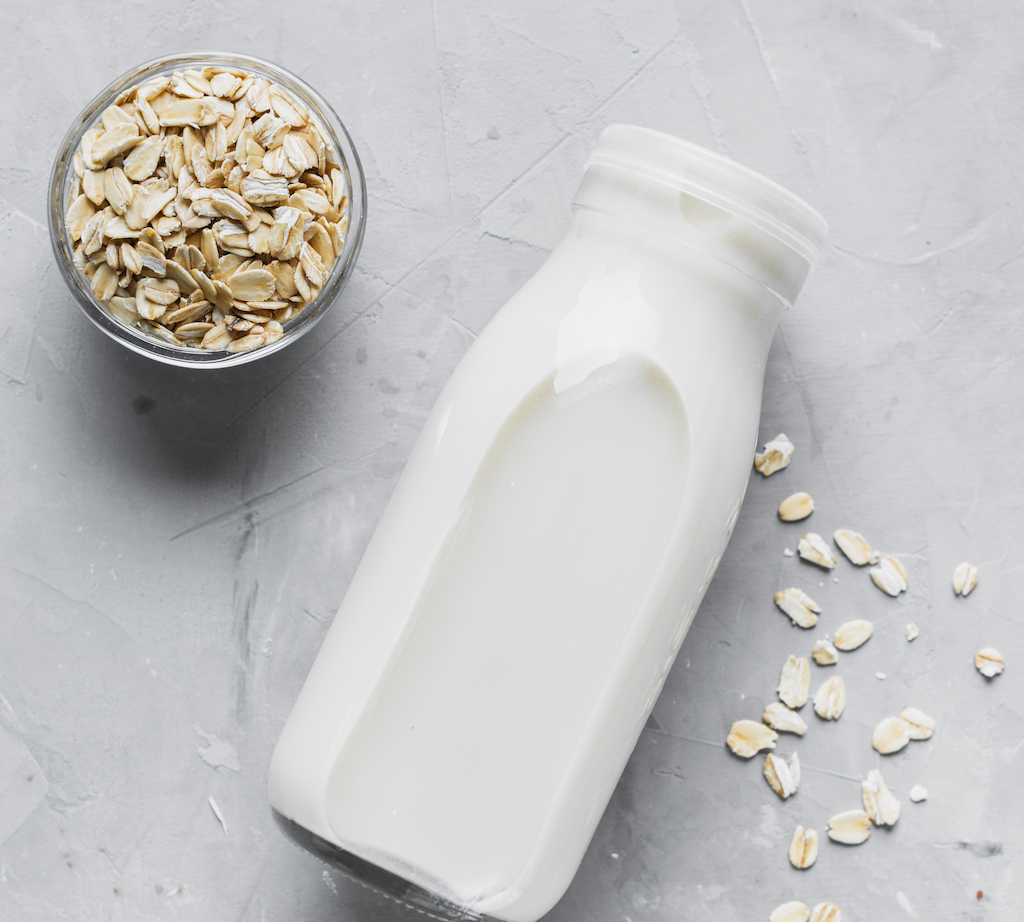
Scientific studies have linked the intake of trans fats to numerous negative health outcomes, including inflammation, higher risk of coronary heart disease, higher “bad” LDL cholesterol and lower “good” HDL cholesterol levels. It has also been correlated with a higher risk of developing type 2 diabetes.
And dairy is one of the biggest sources of dietary trans fats in the average Western diet. According to the NIH, trans fats make up anywhere between 3-7% of the total fat content in dairy products.
Dairy and the environment
When it comes to the environment, dairy milk is the worst option to go for. Producing cow’s milk is an environmentally-taxing process because it requires raising cows, which means more water and land resources have to go into producing animal feed, and cows also emit huge amounts of methane—which has a global warming potential 28-34 times that of CO2—mainly due to their belching and manure.
In a 2018 Oxford university study, researchers found that one glass of cow’s milk has at least 3-times higher a carbon footprint compared to any type of plant-based milk. It uses up 120 litres of water and also requires significant amounts of land. To produce one glass of dairy milk every single day for one year would use up 7,000 square feet of land (that’s two tennis courts).
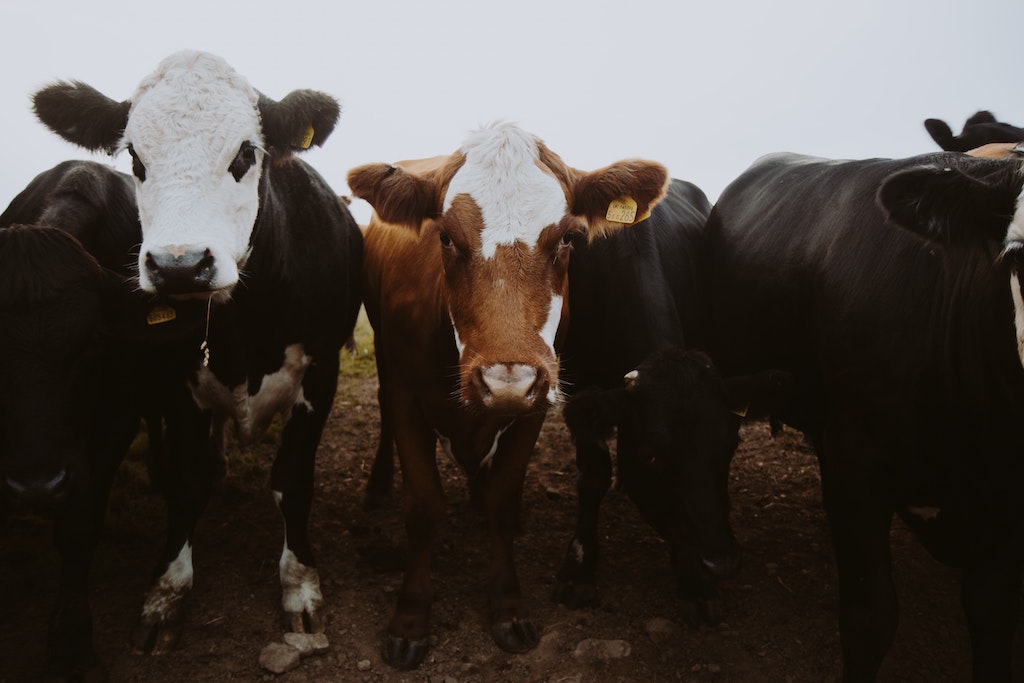
Now, while all plant-based milks have a far lower carbon footprint, oat milk really does stand out for being one of the most planet-friendly of all. One litre of oat milk uses up around 48 litres of water, according to the Oxford paper, which is lower than that of soy and almond.
In terms of its carbon footprint, a 200-ml glass of oat milk emits around 0.18 kilograms of CO2 equivalent, far lower than that of dairy. The land footprint of oat milk is indeed a bit higher than almond, soy or rice alternatives, but still 10-times smaller when compared to cow’s milk.
We should also bear in mind that the carbon footprint of different oat milk brands will vary too, when accounting for things like packaging, transportation and even the types of oats used (like whether they are organically grown or not). Oatly’s products in the EU, for instance, come with a slightly figure for its carbon footprint label compared to its products sold in Asia or the US.
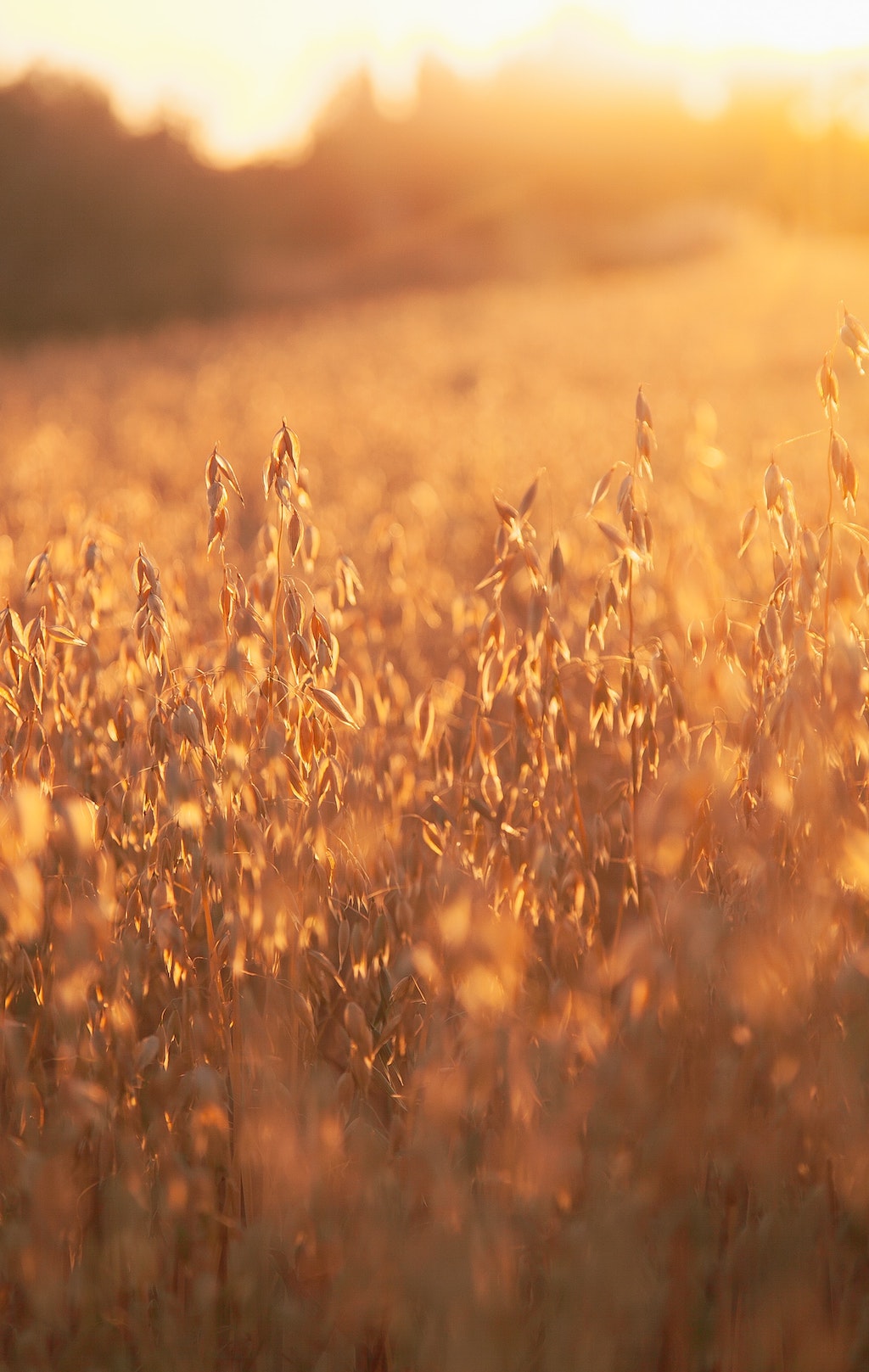
But ultimately, because the production stage makes up the bulk of emissions of a food, oat milk will always win out compared to dairy in terms of its impact on the environment.
Our World In Data’s report on food emissions across the supply chain, for instance, concluded that in general: “Plant-based foods emit fewer greenhouse gases than meat and dairy, regardless of how they are produced.”
Best oat milk brands
Long gone are the days when oat milk was a niche offering. We’re now in a world where the dairy-free competition has really heated up, and the oat milk category is definitely no exception. There are just so many brands out there. We’re not going to be able to cover them all, but let’s look at some of the players now offering oat milk, from iconic pioneers like Oatly to established food giants like Nestlé and loads of up-and-coming startups too.
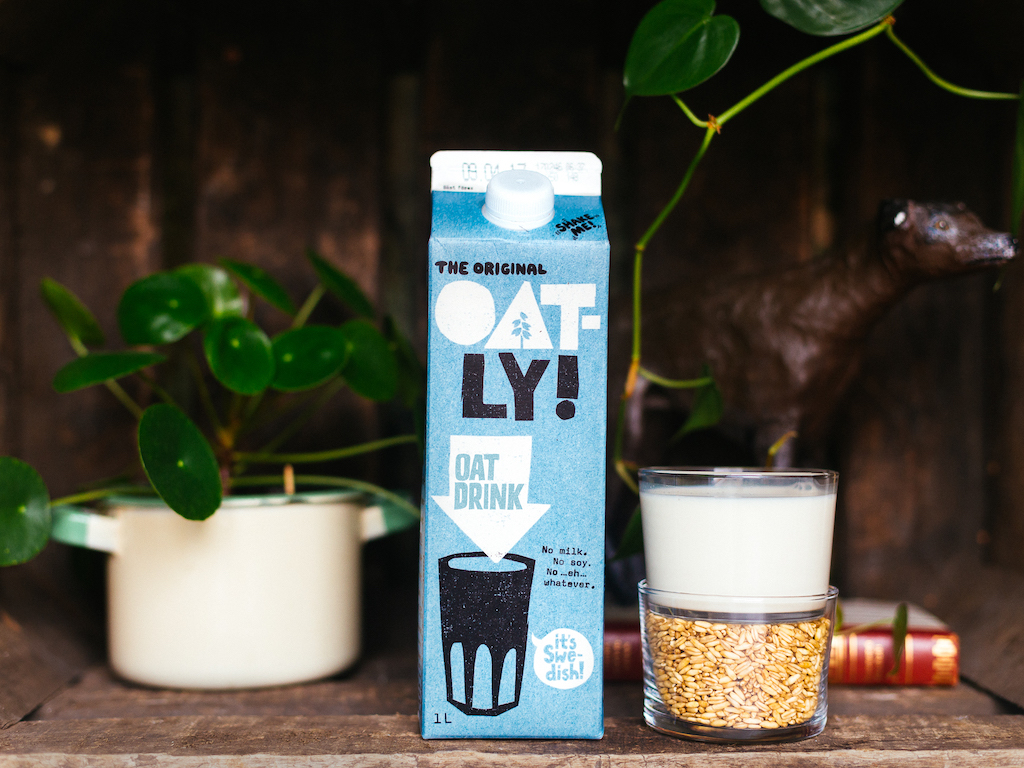
Oatly
No single oat milk brand list would be complete without Oatly, perhaps the most recognisable label on the market. The Swedish food tech first dished out its oat beverage back in 1990s, and has since become one of the biggest alt-protein players and even launched its $10 billion IPO this year. Its success hasn’t come without controversy, from the Blackstone investment scandal to its latest legal loss to smaller oat milk rival Glebe Farm, but the company is still recording extraordinary growth and is expected to see a 64% rise in revenue this year.
Aside from selling oat milk in different flavours (chocolate, vanilla, sweetened, unsweetened, barista), the company makes a wide range of oat-based dairy alternatives, including yogurts, creamers and ice cream. Oatly is sold globally across the US, Europe, and Asia, in both retail and foodservice channels, notably with coffee giant Starbucks as well as cult favourite hipster chain Blue Bottle.
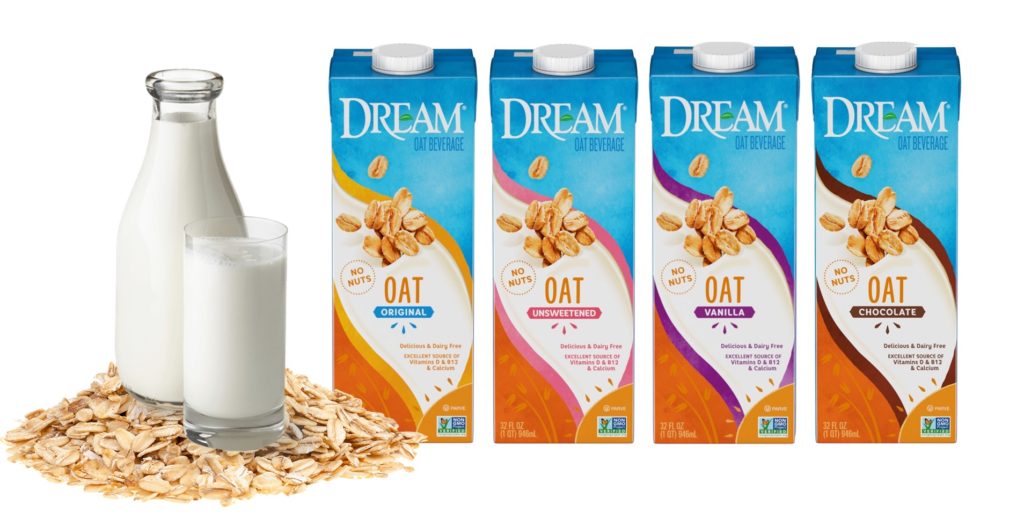
Dream
Legacy dairy-free brand Dream might be better known for its rice-based products over the years, but the company has made its foray into oats too. Its Dream Oat range includes two oat-based beverages, including unsweetened and original varieties. The brand, a subsidiary of SunOpta, is sold across major retailers in the US and also distributed internationally.
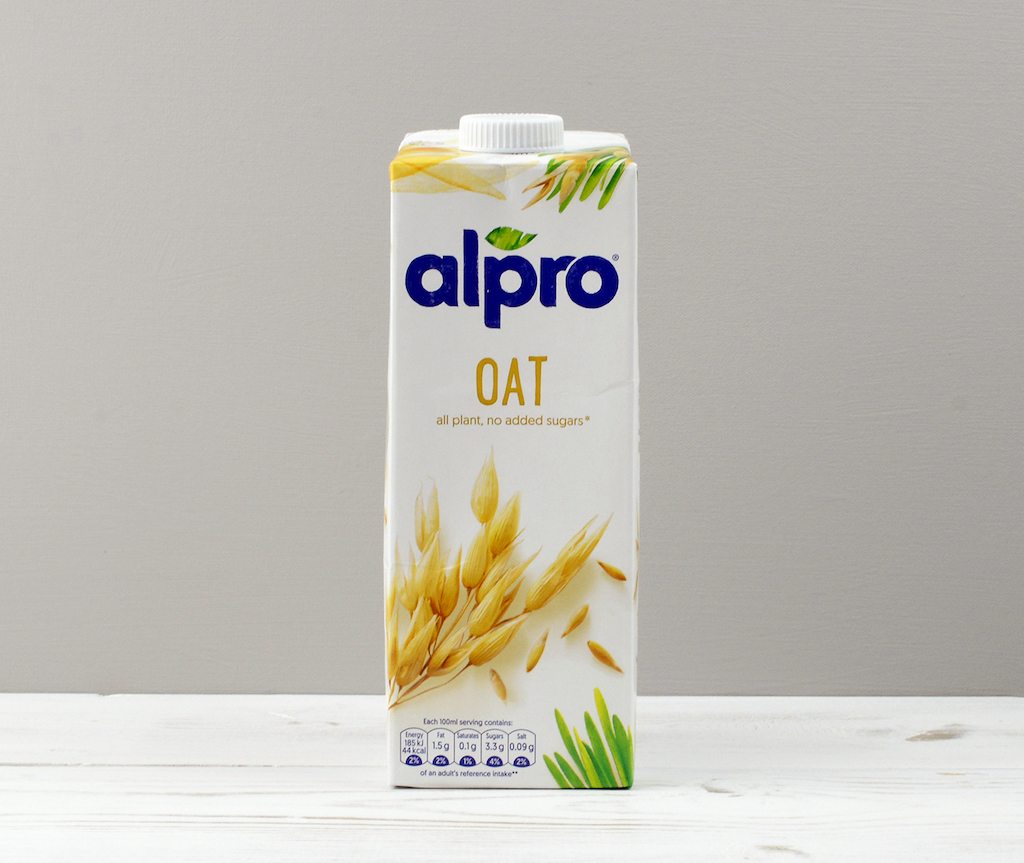
Alpro
Alpro is another dairy-free stalwart that has launched a separate Oat Alpro range, which includes oat milk (coming in original, sugar-free and flavoured varieties like chocolate) as well as oat-based yogurts such as its new Greek-style dairy-free oat yogurt product. It also makes ready-made oat-based beverages like smoothies, lattes and an immunity drink with echinacea extracts. Alpro, which is owned by Danone, is widely sold across the UK and Europe, as well as in the Middle East, Asia-Pacific and Africa.
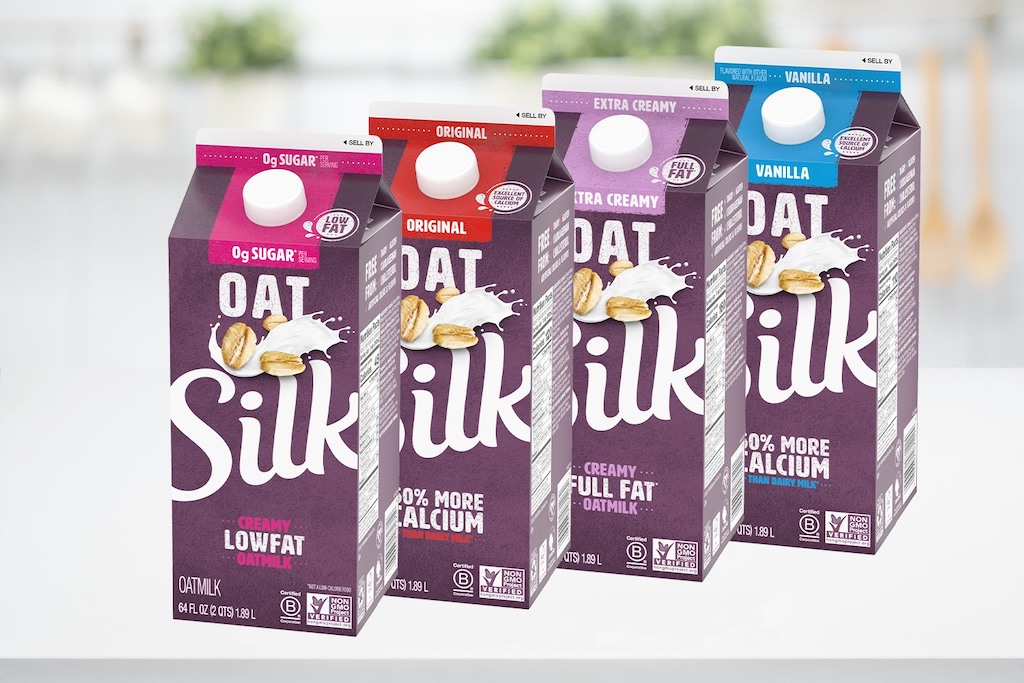
Silk
One more long-time dairy-free brand has taken the oat turn is Silk. Joining the brand’s wide array of coconut, rice, almond, soy and cashew line up is Silk Oatmilk (it used to be called Oat Yeah), which is offered in original, zero sugar, vanilla and extra creamy. Also a Danone subsidiary, Silk is sold across the US and distributed in international markets as well.
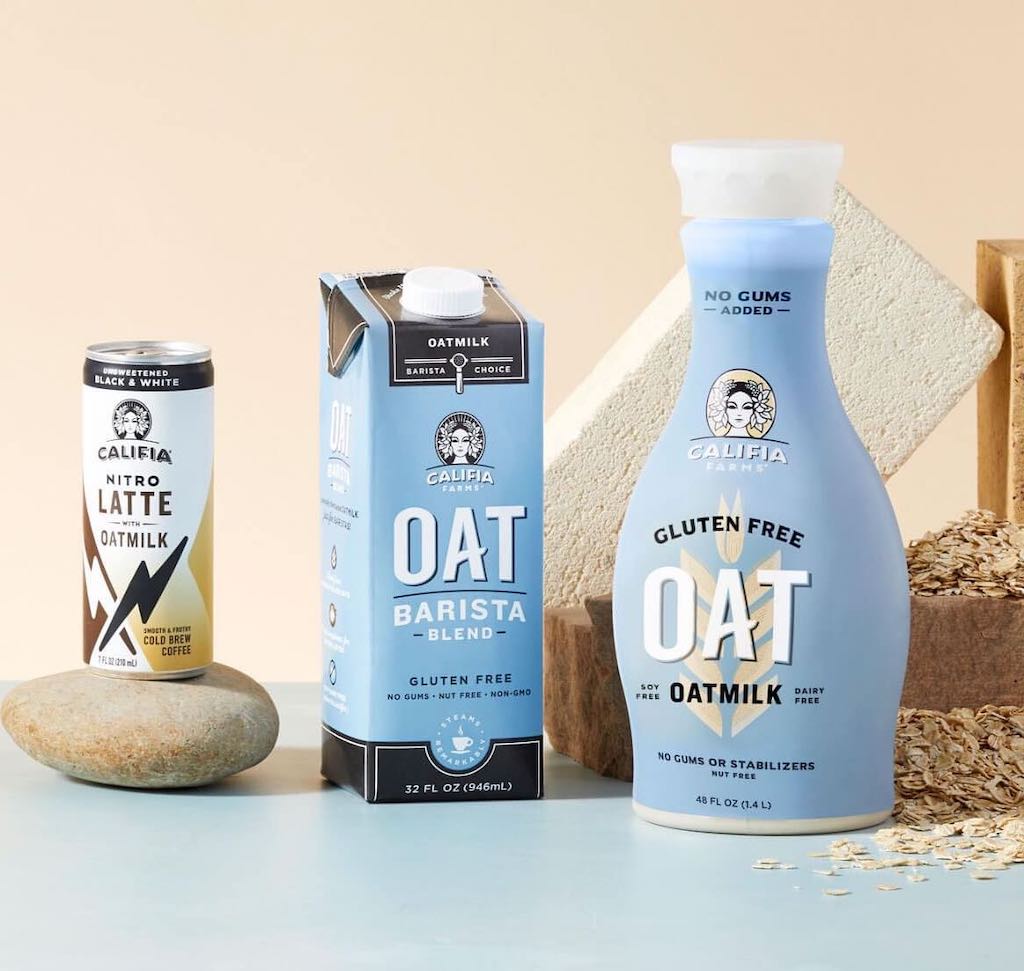
Califia Farms
Aside from its fan favourite almond milks, Califia Farms also produces oat milk. And while it does offer original oat milk, a protein version and a creamer, the brand’s star oat product is really the barista blend. The Oat Barista Blend is perfect for making lattes, and foams super well and tastes oh-so-creamy. Califia Farms is sold across the US, UK, Australia and some Asian markets.
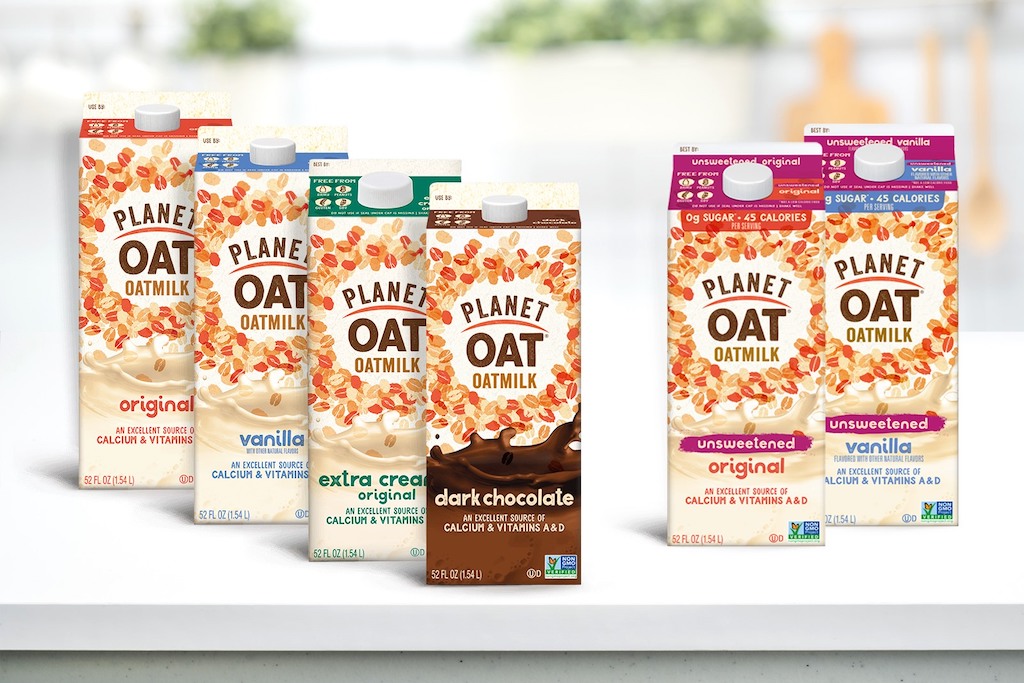
Planet Oat
Planet Oat is a brand launched by American dairy operator HP Hood, and its oat milk range currently includes original, original unsweetened, vanilla, vanilla unsweetened, extra creamy and dark chocolate—and all of them also come in both fresh (in the refrigerated aisle) and shelf-stable cartons. Planet Oat is currently sold across major retailers in the US.
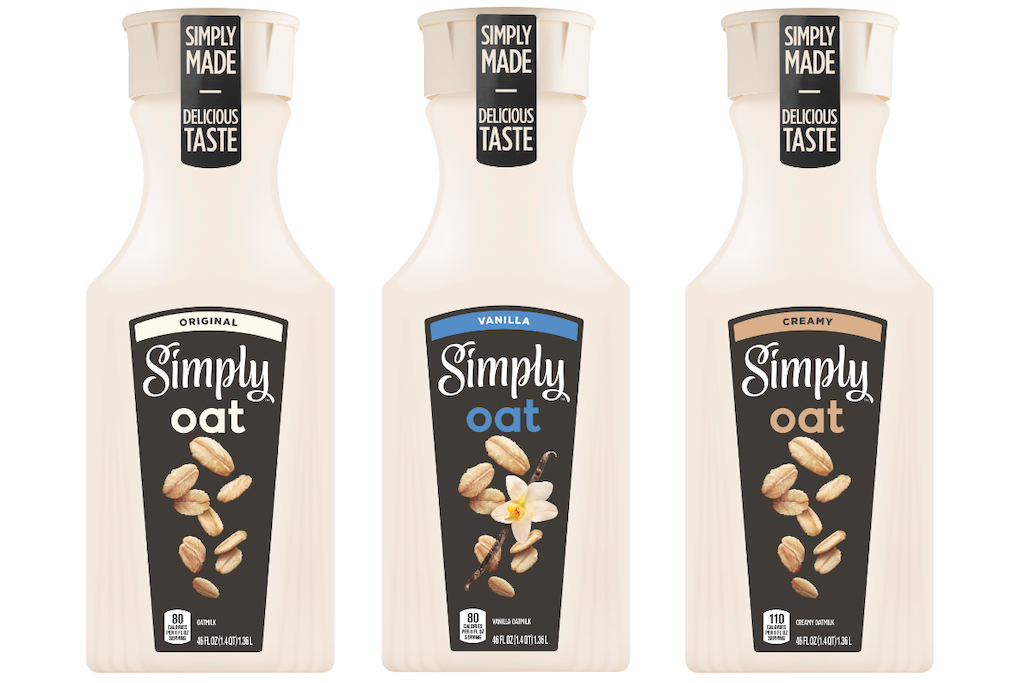
Simply (Coca-Cola)
Simply is a dairy-free brand launched by the world’s biggest drink maker, Coca-Cola, and it has recently expanded its line-up with Simply Oat. It offers three products in total, original, vanilla and creamy, and is sold in 46-ounce carafes—perfect for large families, offices and foodservice channels.
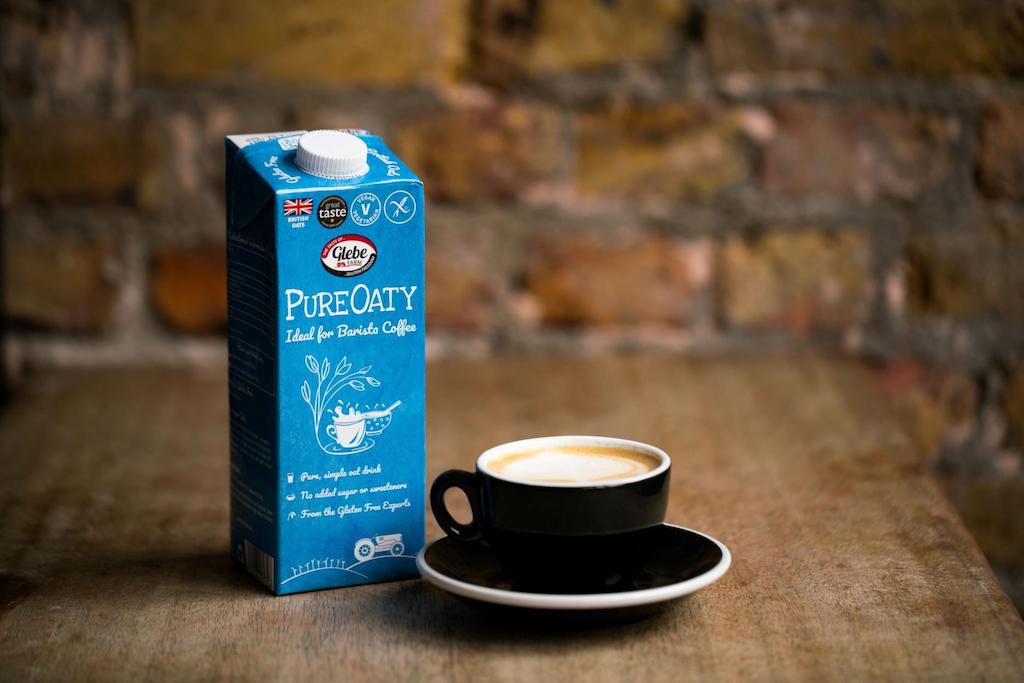
PureOaty
Thanks to the publicity from Oatly’s lawsuit, PureOaty has become a popular oat milk brand. It is created by local British family-run company Glebe Farm, and is sold across the UK. PureOaty is a barista blend, sold in the ambient aisle in cartons and made with Glebe Farm’s own British oats.
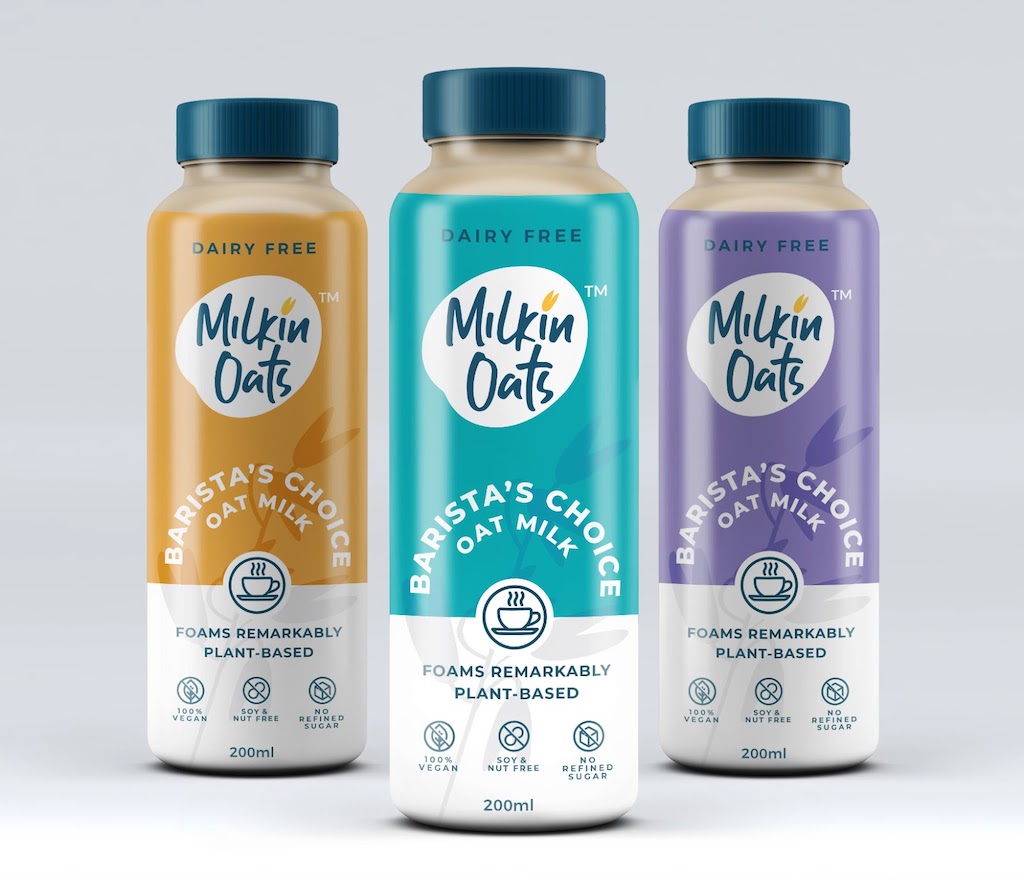
MilkinOats
MilkinOats is India’s first homegrown oat milk brand. Based out of Mumbai and Delhi, the company has a line of dairy-free oat-based beverages, available in classic, chocolate and barista’s choice blend. As part of the Vocal For Local movement, the company sources all its oats from India, and has since also launched vegan oat milk chocolate bars made with its very own dairy-free blends. Currently, the brand is sold across online channels within India, including on its own website and on Amazon, Flipkart and Veganmall.
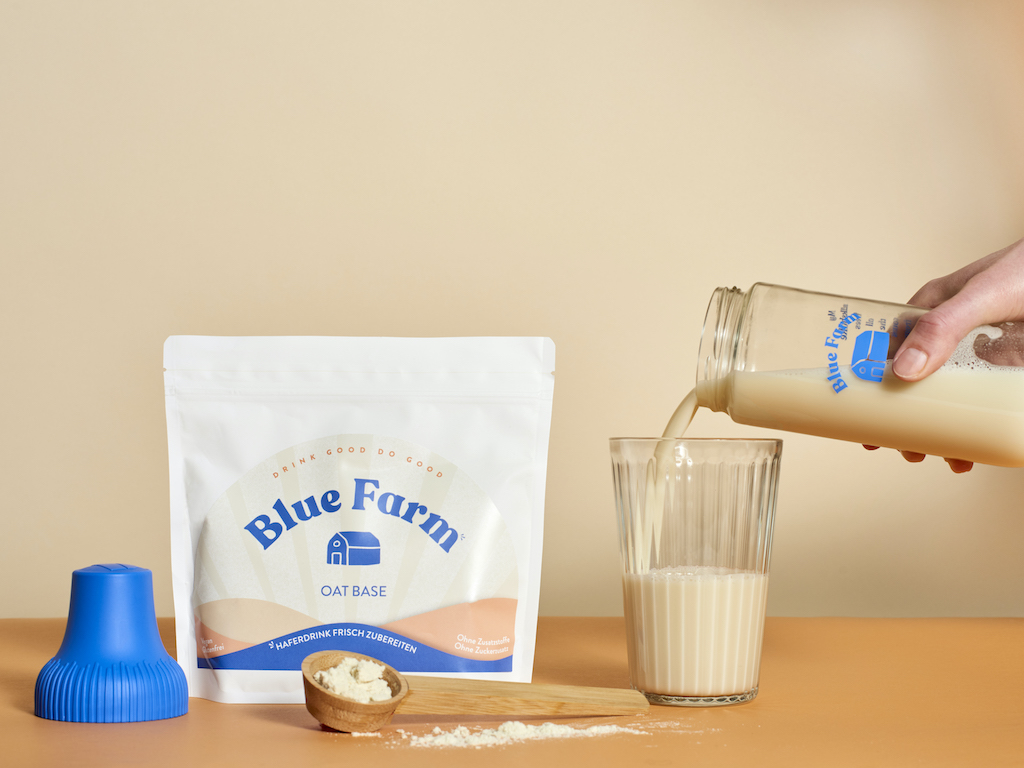
Blue Farm
Hailing from Berlin, Blue Farm is one of the newest oat milk players to join the competition. What sets the company apart from others is its focus on sustainability above all else—and it’s the reason why its oat milk product actually comes in powder form. The food tech’s Oat Base, which can be easily mixed and shaken up with water into a milky liquid, cuts out extra packaging and the carbon emissions from transporting heavy liquid-filled cartons or bottles for miles. It also means less food waste, with consumers only making as much oat milk as they plan on consuming (the powder is shelf-stable). It is available directly to consumers in Germany via its website.
Lead image courtesy of Freepik.


